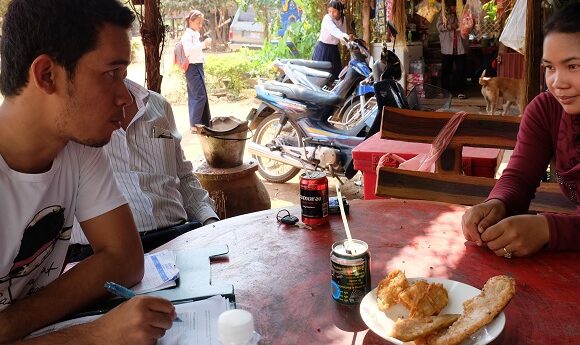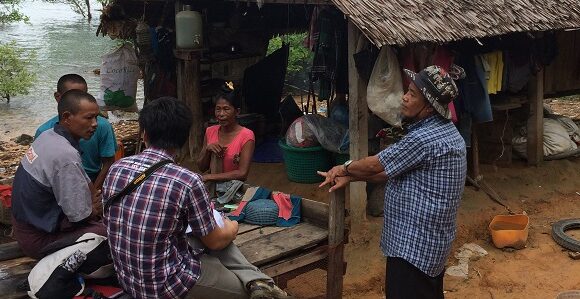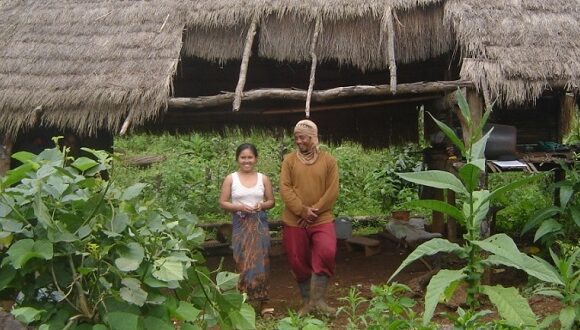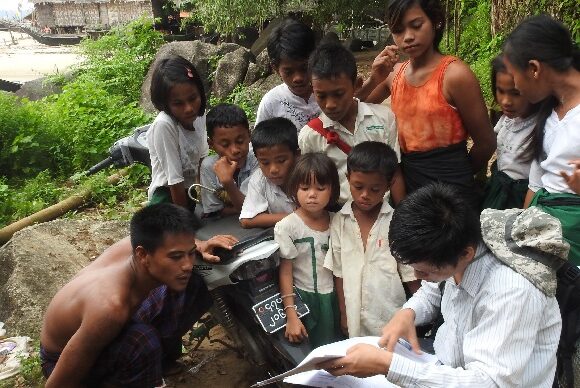SLP Environmental offers a full range of stakeholder engagement services as part of our Social Impacts Assessment and Management services. Social Impact Assessment (SIA) is a critical component of the overarching Environmental and Social Impact Assessment (ESIA) process and SLP offers the full range of sub-component services from the initial Stakeholder Identification (Stakeholder ID) process and preparation of a projects Stakeholder Engagement Plan (SEP) through to Project Disclosure, multi-tiered Public Consultation (PC) activities, and where physical and or economic displacement is unavoidable, preparation of Asset Registers of Project Affected People (PAP), Resettlement Action Plans and or Livelihood Restoration Plans.
SLP Environmental has a comprehensive understanding of the regulatory requirements related to the assessment and management of the social impacts of projects in all the ASEAN jurisdictions. We also specialise in providing social assessments consistent with Good International Industry Practice (GIIP) and our projects are typically benchmarked against one or a combination of international good practice guidelines/benchmarks such as:
SLP Environmental is an advocate for informed consultation and participation (ICP) and the principle of benefit sharing and strives to ensure that the concerns and opinions of project affected people (PAP) and communities (PAC) are factored into the project development process at the outset. As part of the planning stage social due diligence assessment, SLP Environmental uses rapid social survey techniques such as pilot questionnaire surveys, semi-structured interviews and initial discussions with focus groups and key informants to identify potential stakeholders, gauge public opinion to the proposed project, build relationships with the community and provide input into the development of a robust socio-economic profile of the projects area of influence.
Following this stage SLP Environmental would generally prepare an Outline Stakeholder Engagement Plan (SEP) which details the proposed methodologies for; Stakeholder Identification, Project Disclosure, Stakeholder and Public Consultation; and Grievance Management. The SEP is a living document and is updated throughout the life cycle of the project.
SLP Environmental organises public consultation activities which are undertaken at various stages of the project development cycle including but not limited to; the project planning and feasibility stage, ESIA scoping study and main ESIA investigation stages as well as after the draft ESIA report has been prepared. SLP Environmental tailors the extent and depth of stakeholder engagement to the predicted magnitude of the projects adverse impacts and the concerns raised by PAP and PAC during the initial stakeholder engagement activities.
Public consultation methods for projects with significant impacts (Category A or B) as a minimum include stakeholder and public meetings at the local, district, provincial and national levels, or as prescribed under the law of the host country. Stakeholders in the public consultation process at various stages generally include but are not limited to; the project proponent, relevant government agencies, local authorities, project affected peoples and communities, civil society organisation’s (CSOs), non-governmental organisation’s (NGOs), the media and academic institutions. SLP Environmental organises, moderates and transcribes stakeholder and community engagement activities at all levels.
Focus group discussions with vulnerable groups and disadvantaged peoples (as identified in the project SEP) are also convened by SLP Environmental at the local level to understand the perspectives, concerns and aspirations of what are often the most disenfranchised and unempowered members of society
If significant adverse social impacts are identified then SLP Environmental assesses the potential mitigation options in a sequential manner based on a descending order of preference, namely; Avoid, Minimise or Offset. Wherever practicable the overriding objective is to avoid, minimise or reduce any significant adverse social impacts and enhance the positive impacts of the project, however in some cases the physical and economic displacement of people is unavoidable.
Where land acquisition and displacement of PAP is unavoidable, SLP Environmental can work with clients to secure negotiated settlements with PAP and PAC to avoid forced evictions. The objective is to minimise the adverse socio-economic impacts by resettling/rehousing (with security of tenure), compensating for loss of assets and income and improving or restoring the standards of living of the displaced persons. Where physical and or economic displacement is unavoidable, SLP Environmental can organise a census of PAP to ascertain the status of the displaced persons, conduct the Asset Registration of eligible PAP and work with the client to establish and proclaim the cut-off date for eligibility for consideration under any resettlement or livelihoods restoration scheme.
Where indigenous peoples are present then a higher level of assessment and consultation is required in accordance with the principle of Free Prior Informed Consent (FRIC). Indigenous Peoples are particularly vulnerable if their lands and resources are transformed, encroached upon, or significantly degraded and SLP Environmental helps project proponents anticipate and avoid where possible adverse impacts of projects on communities of Indigenous Peoples. Where adverse impacts are unavoidable, SLP Environmental will work with the project proponent to minimize, restore, and/or compensate for impacts in a culturally appropriate manner and ensure that FRIC is obtained from the affected communities of indigenous peoples in accordance with practice presented in IFC Performance Standard 7.
SLP Environmental also offers project proponents guidance on complying with the requirements of IFC Performance Standard 2 relating to Labour and Working Conditions and can audit projects on behalf of project lenders to determine whether borrowers are complying with the requirements of IFC PS2.





